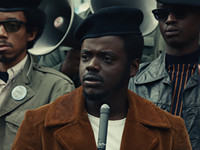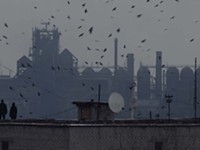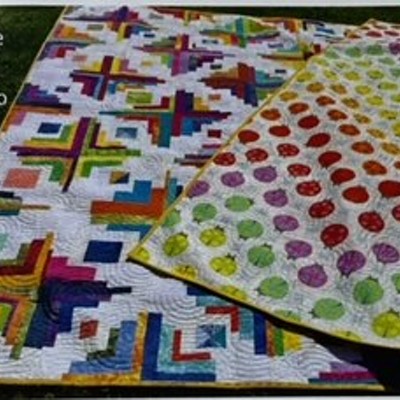[
{
"name": "500x250 Ad",
"insertPoint": "5",
"component": "15667920",
"parentWrapperClass": "",
"requiredCountToDisplay": "1"
}
]
In May of 1993, the bodies of three 8-year-old boys were found stripped naked, bound, and mutilated in a creek in a wooded area of West Memphis, Arkansas, known as Robin Hood Hills. The brutal and lurid nature of the crime led to rumors that the murders were part of a satanic ritual, incensing the local population to near hysteria, as they demanded for an arrest to be made. To say that the investigation conducted by the West Memphis police was poorly handled is an understatement — it was remarkable in its level of incompetence. But nevertheless, three teenaged suspects were produced: black-clothes-wearing, heavy-metal-listening loners Damien Echols, Jason Baldwin, and Jessie Misskelley. In the heavily publicized trials that followed, the three boys were tried and convicted. Baldwin and Misskelley received life sentences, while Echols was sentenced to death.
Filmmakers Bruce Sinofsky and Joe Berlinger documented the trial and investigation and made a case for the three boys' innocence in their landmark HBO documentary, "Paradise Lost: The Child Murders at Robin Hood Hills." That film debuted in 1996, bringing national attention to the case and inspiring a movement advocating for the release of the boys, now known as "the West Memphis Three." Since then, Sinofsky and Berlinger have twice returned to the case, filming two sequels (the last installment, "Paradise Lost 3: Purgatory" was released in January of 2012 and received an Oscar nomination for Best Documentary Feature) that documented the case all the way up through the boys' ultimate release from prison at the end of 2011. That conclusion was the result of an unusual deal with Arkansas state prosecutors that allowed the three men to trade a guilty plea in exchange for their freedom.
Now a new film produced by longtime West Memphis Three supporters Peter Jackson and Fran Walsh, and directed by Amy J. Berg ("Deliver us From Evil"), chronicles the entire ordeal all over again. The story of the original murders and the railroading of three likely innocent boys is fascinating, utterly compelling, and completely horrifying. But is there really enough reason to justify another movie when the case has already been so expertly documented? Somewhat surprisingly, the answer turns out to be "yes".
A main strength of the new film is hindsight, which allows Berg the opportunity to step back and view nearly the entire breadth of the case. The first two of the "Paradise Lost" films were made in the midst of the action, and the filmmakers had to do all their own investigating into the evidence as events developed. Berg had access to all that information right from the beginning. The investigation that "West of Memphis" wages also reaps the rewards of the significant financial backing of Peter Jackson. In addition to acting as producer, Jackson also appears on camera, detailing his interest in the case and exactly how he came to be involved. His funding allows this film to hire some of the country's leading experts, as well track down and interview several people that those earlier films were never able to convince to appear on camera.
The "Paradise Lost" films focused a great deal on the boys themselves, but "West of Memphis" takes a different approach. Berg's film is more clinical, digging deeper into exacting detail about the specifics of the case itself, sticking to the facts and delving less into character. While Damien Echols (who's also listed as a producer on the film) gets significant screen time, the other two members of the West Memphis Three, Josh Misskelley and Jason Baldwin, are allowed to fade somewhat into the background. This film is lightly critical of "Paradise Lost 2," specifically the way the filmmakers' focused on John Byers, the step-father of another of the young victims, as a possible perpetrator. The "Paradise" filmmakers demonized the man, making a convincing case against him — though he was ultimately proven to be innocent.
It's hard not to see those criticisms as somewhat hypocritical: that film was working off the fairly solid evidence that was available at the time, and Byers, who was clearly fond of being in front of the camera, sure as hell acted guilty. Berg has access to new DNA evidence that didn't exist years earlier, making her case much stronger. But she can't resist utilizing some of the same questionable theatrics while making her case against her suspect, using menacing-looking footage of the step-father of one of the other victims.
"West of Memphis" provides a thorough overview of the case for those coming in cold, and manages to build an even stronger case for the innocence of The West Memphis Three while providing greater evidence against another suspect. In this way, the film works as a nice addendum to the "Paradise Lost" trilogy. If nothing else, the film is worthwhile for the emotional epilogue that concludes the film, as the three men journey into the outside world for the first time in nearly 20 years, enjoying their newfound freedom.












